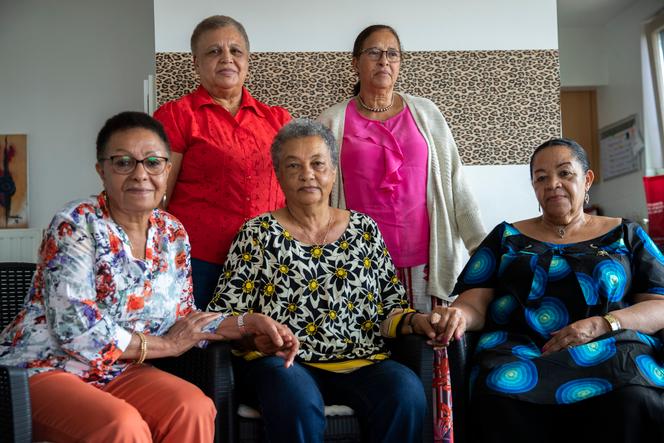


They had waited decades for this moment and their joy was as great as the event on Monday December 2, when the Brussels Court of Appeal ruled in their favor. The judges found the Belgian state guilty of crimes against humanity committed against five mixed-race women, born in former Belgian Congo (now the Democratic Republic of the Congo) to a black mother and a white father. Léa Tavares Mujinga, Monique Bitu Bingi, Noelle Verbeken, Simone Ngalula and Marie-José Loshi were 21 months old in the case of the youngest, and aged five for the oldest, when they were forcibly abducted, placed in religious institutions and abandoned to their fate at the time of the country's independence in June 1960.
Métis, or mulattoes, "Children of shame and sin" according to the political and religious authorities of the time, represented a double threat in the eyes of the colonial regime. "According to the colonial regime, they jeopardized the supremacy of the white race and, besides, risked fomenting a Black revolt," said Michèle Hirsch, one of the five plaintiffs' lawyers.
In May 2023, a criminal court had recognized the tragedy and violence suffered by these five women, all taken from their families in the name of a policy defined in 1913 by Joseph Pholien, a politician who was to become prime minister in 1950: "No remedy is radical enough to prevent the creation of half-breeds." Without endorsing the State's lawyers, who felt that this trial risked being the trial of colonization as a whole, the judges of the first instance had nonetheless ruled that Belgium had not been guilty of crimes against humanity, as this notion did not exist, according to them, at the time of the events.
The court of appeal completely overturned this judgment, stating that the little mixed-race children had been abducted solely because of their origin and in accordance with a "general and systematic" policy. Finding that their abduction was an inhumane act of persecution, the court considered it a crime against humanity "by virtue of the principles of international law recognized by the Statute of the Nuremberg Tribunal and incorporated into international criminal law by the United Nations in 1946."
Created after the Second World War to judge the crimes of Nazism, the Nuremberg Tribunal had described the abduction of children under the age of 7 as an "inhumane act." The Belgian judges declared it imprescriptible, basing their decision on their country's laws concerning human rights violations and persecution. Adopted in 1998 and 2003, these laws specified that they would apply to all violations, including those committed before the provisions came into force. "Today, we are witnessing the first substantiated condemnation of a State for crimes against humanity committed during colonization," said Hirsch.
You have 51.92% of this article left to read. The rest is for subscribers only.
